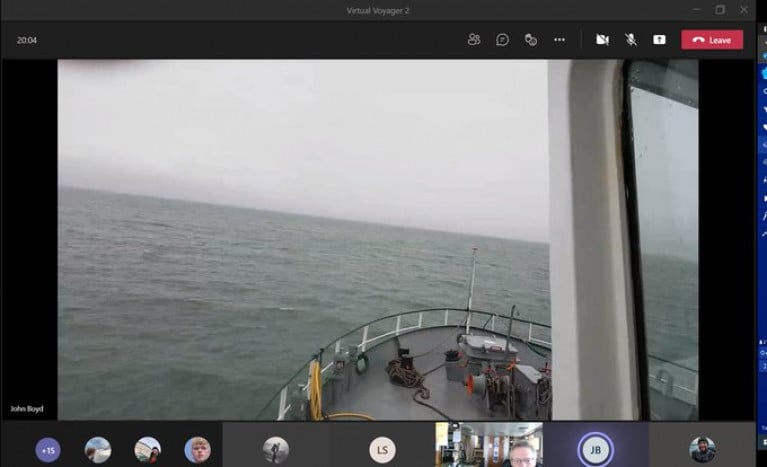Displaying items by tag: LiveStreaming@ Sea
RV Celtic Voyager of the Marine Institute, Ireland's national agency for marine research, development and innovation, has been working in south Dublin Bay this week, writes Jehan Ashmore.
The 31.4m ship to be replaced next year by a Spanish newbuild, to be named the RV Tom Crean (52.8m), has since the start of this week carried out ship-based training albeit for 'land-based' marine biology students given the lock-down restrictions.
Despite that, Dr. Simon Berrow and Mr. John Boyd of the Galway-Mayo Institute of Technology (GMIT) have been 'live-streaming' from on board the RV Celtic Voyager to their students at home.
According to a tweet on the M.I. website, the work has been an excellent run down of what's involved in offshore surveys. As close as the real thing as you can get, less the swell and the rain!
The scene was observed by Afloat as the RV Celtic Voyager was in a south Dublin Bay prior to returning to the temporary base of Dun Laoghaire Harbour this afternoon. According to Met.ie, gale force 8-9 winds forecast tonight on the Irish Sea and Storm Force 10 off Wicklow Head and further south.
Already in port at Carlisle Pier, the UK registered, Spanish owned trawler Magan D which had been adrift that arrived at the weekend. Also berthed but since yesterday, Dublin Array's proposed wind-farm project related ship, Fugro Mercator having been busy on geophysical surveys.
The GMIT has a Marine and Freshwater Research Centre where among the specialist research staff is Dr Simon Berrow, responsible for Marine mammals, seabirds and Environmental impact. Also on board, Mr. John Boyd's specialising in fisheries, seagoing operations and maritime training.
The vessels six day (at 'sea') training programme is scheduled to end this Saturday.
While today, the M.I. other larger research vessel, RV Celtic Explorer (65.5m) is working in waters considerably further offshore in the North Atlantic Ocean.
Afloat tracked RV Celtic Explorer some 400 nautical miles offshore of the western seaboard to the ship's homeport of Galway.
The deployment of the vessel is to support an Ocean & Climate survey across south Rockall Trough with the vessel due back to its homeport in around a month's time.





























































